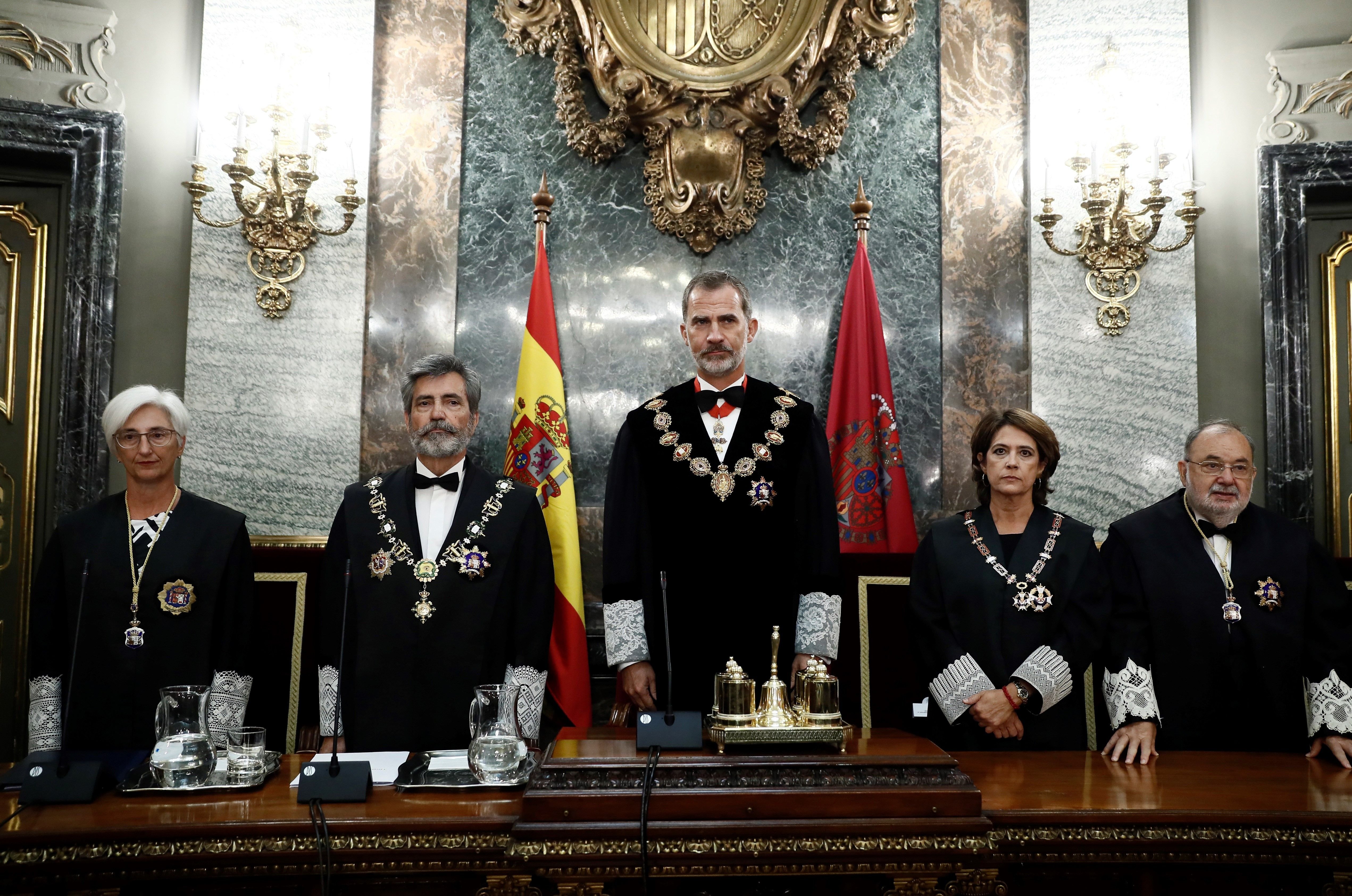The sentence in the trial of pro-independence Catalan leaders following the 2017 referendum will arrive in the coming weeks. And, without a doubt, whatever the verdict is, it will lead to turbulence both inside and out of the Supreme Court. So the Spanish judiciary is closing ranks, ready for what's to come. This Monday, during the ceremony formally starting the legal year, presided over by king Felipe VI, the president of the Supreme Court, Carlos Lesmes, defended the judges in the case and called for respect for their decisions. The sentiment was echoed by Spain's attorney general, María José Segarra.
"Our state would not be democratic if it did not guarantee respect for the law," said Lesmes. He warned that "norms and principles would not go beyond being mere rhetorical declarations without a tool for guarantees which offers them efficacy, so that respect for the law implies, inescapably, respect for legal decisions". These decisions, he said, have to be "respected and complied with".
On similar lines, even more explicitly, Segarra warned that "we all have the imperative obligation to comply with the sentence handed down, whatever it may be". The attorney general said that given the "gravity of the facts", "the response has to be the serene, firm and rigorous application of the law". On that subject, she said that the hearings in the case were handled with "broad standard of transparency".
From the very room where those hearings were held, and in front of the presiding judge in that case, Manuel Marchena, Lesmes, who is also the head of Spain's General Council of the Judiciary, dedicated a large portion of his speech to a "trial of great social and media impact". He said it "showed, once again, the commitment of our judges to the defence of the values of the rule of law proclaimed by the Constitution".
"Deviations from human behaviour"
Lesmes wanted to "congratulate" Marchena and his fellow judges, and to express his "recognition" for the parties in the case, both prosecution and defence, for their "professionality and rigour". He cited the case as the "paradigm for these thousands of trials which are held every day across our country" which "are built on the pillars of responsibility, dedication, professionalism and the constant search to protect the public's rights".
"Democracy does not exist without rules which order the working of its institutions and norms which guarantee civil and political rights," he said. "Social harmony has demanded the establishment of norms which govern mans' conduct and which allow us to react in the face of the transgressions or deviations from human behaviour which put peaceful coexistence at risk".
For her part, the attorney general emphasised the "response" offered to the "secessionist challenge" in Catalonia. "The commitment of the legal system in general, and of this institution in particular, to the defence of the rule of law has been singularly maintained," she said. "A coexistence which, based on respect for diversity and freedom of opinion, will have to continue being guaranteed in the whole national territory through the only way possible in a democratic state: respect for the law".
The General Council of the Judiciary
One of the other points Lesmes was keen to make was that his mandate expired last December: "More than nine months have passed since then without the Parliament having been able to satisfy the constitutional prevision of renewing the institution". "This delay constitutes a grave anomaly in the working of the institutions and if it is prolonged it could contribute to discrediting the body itself, the body which governs [Spain's] judges," he warned. Marchena had initially been set to take over from Lesmes, but he turned the position down in controversial circumstances.

